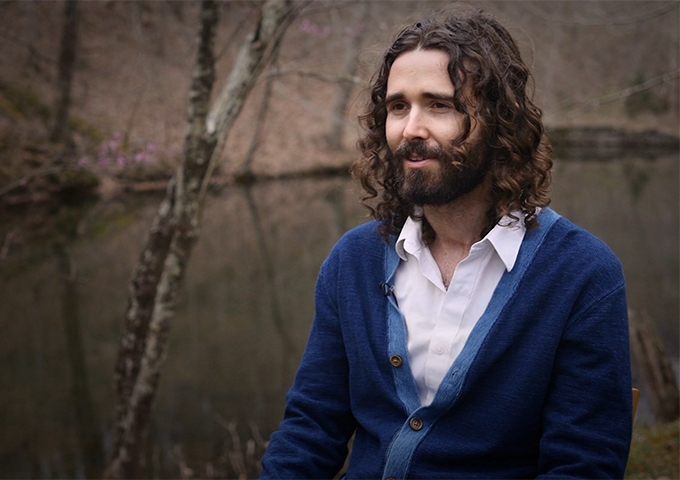Teenager Questions God’s Love During Gruesome Cancer Fight
“I can remember hearing the doctor walk down the hall,” Jordan Lawhead said. “I can remember the very timid knock at the door. I can remember him sitting down and seeing the look on his face and knowing that it’s not good.”
It had been six years since Jordan Lawhead had surgery to remove the malignant melanoma on his neck. Now 23, He learned the cancer had returned. This time it was stage IV and had spread to his brain and beyond.
“It was all over my body,” Jodan said. “It was in my head, it was in my neck, it was in my stomach, my back, my lungs. Everywhere and growing.”
Even with treatment, doctors at Vanderbilt University Medical Center gave Jordan only six months to live.
“What you feel in that time is your heart is racing,” Jordan said. “And your mind is racing. You feel broken, completely broken and devastated and just reaching for whoever you can. And whoever you can – you’re reaching for is broken too. Yeah, like my parents.”
“Why him, Lord? Why not me?’” Jordan’s father Gordon Lawhead said. “I would rather take his place and deal with all the suffering and the pain and agony and all of that rather than have him go through it.”
Doctors immediately started radiation to shrink the tumor in Jordan’s brain. They also performed two emergency surgeries to remove part of his bowel and appendix. Then, Jordan’s life expectancy dropped to just a few days when doctors discovered a fast-growing tumor on his neck.
“It was threatening to [put] pressure on his windpipe and on trachea,” Dr. Ivan Puzanov said. “which of course he would not be able to breathe. He would die immediately.”
Doctor’s felt Jordan’s only hope was Interlueukin-2. The FDA considers it a black box drug—one that when used, could be fatal.
“So we really were pushed into doing the risky treatment under even riskier circumstances,” Dr. Puzanov said. “This was basically—we had probably two days left to do it, or not to do it at all.”
And it was in that moment I had to decide to believe that God has made us as individuals and not statistics,” Jordan said.
Jordan would have four rounds, each requiring a five-day hospitalization. One night, Jordan lay in bed awake. His father who was in the room, was asleep.
“And I looked up and I said to God, I don’t really feel like You love me,” Jordan said. People say You do. There’s stickers; there’s T-shirts. I’ve read it in the Bible. But right now, I don’t really feel like You love me. You know, we would hope for in that moment in our own mind this sort of sense and cosmic hug. But at that moment, I had to sit up; I had to wake my dad up and say ‘Get the bucket’ And I was losing it.”
“And I lay back and he’s wiping my face and my chin and it was in that moment I opened my eyes and I realized that the love of God isn’t just a fuzzy feeling from the sky,” Jordan said. “But it’s as real as the people in our lives, meeting us in the darkest places with a bucket saying let ‘er rip, I’m here for you. It’s that – it’s that place. It’s that moment, those hands, that heart, that – that messiness, that love, has to come from somewhere.”
Jordan and his parents had been fervently praying for his recovery, and as word spread, Jordan heard from people all over the world.
“I had so many people praying for me,” Jordan said. “I was very fortunate to hear from them. I had old people praying for me; I had kids praying for me. I had strangers writing me, telling me, texting me, that they were praying, asking God to intervene/”
The tumors began to shrink after the first treatment, taking Jordan out of immediate danger.
“When everybody’s surprised and feeling positive and excited, slightly holding their breath, we just were all like let’s keep going. Let’s keep fighting. Give me another dose of that horrible stuff because it’s working. And I’m going to go for it even if it kills me.”
Over the next several months, Jordan endured three more rounds of Interleukin. Then 18 months after Jordan was diagnosed, he was once again waiting for the doctor’s knock at the door.
“And they said these very interesting words,” Jordan said. “’Jordan has had a confirmed, complete response.” And that was a moment where we were–the heartbreak that we talked about, the pain, the physical pain, was redeemed. 16:32 It was a confirmed, complete response to the drug, to the power of God intervening by all the people praying. And I will always remember those words.”
It’s been eight years since Jordan was given six months to live. With only 2% recovery rate for these cases, Dr. Puzanov says Jordan beat the odds.
“And he is now 31-year-old man with no cancer visible in brain or in body,” Dr. Puzanov said.
Today, Jordan is a songwriter and musician and runs YouInspire.org, a website to encourage others who are facing similar trials. But most of all, he is grateful to a God of mercy who can be trusted.
“And I believe it taught me to see Him as He is and as I am,” Jordan said. “That I’m not in control. That He is. And that when I put my trust in Him, with every part of my life, whether it’s my health, my joy and career and plans, and money and all of that, that I can be joyfully dependent on Him because He is merciful and I have the scars to prove it.”




